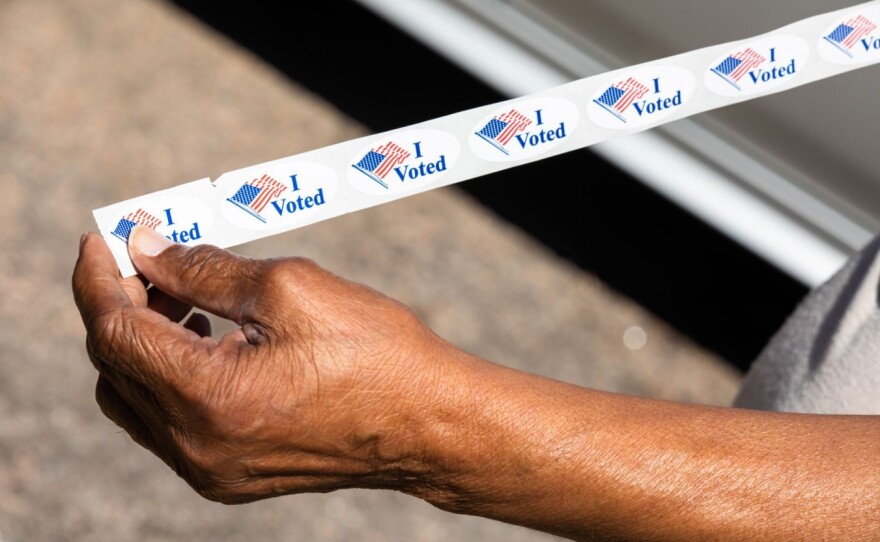VPM collected around 350 submissions from the community, over the course of four weeks, answering one question: What do you want the candidates to talk about as they compete for votes?
This was the starting part for how our news team developed story ideas for the 2020 General Election. Instead of the horse race or reporting on opinion polls, we want to cover the things that actually matter to you.
Who actually took this survey?
The Citizens Agenda Election Survey had an optional section for people to fill out to include demographic information. Some responses were duplicated because they included multiple topics. Of the 349 responses, 190 filled out demographic data. The majority of people who participated were between 55 - 65 years old or older, and identified as female.
Most of those who filled out the survey said they were from Chesterfield (23), Henrico (29), Hanover (21) with the majority being from Richmond (49). A large group was also from Albemarle County (9) and Charlottesville (10) too.
What were some of the most prevalent topics?
- Compromise, Values and Working Together
- Rebuilding / Recovery from the COVID-19 Pandemic (healthcare, economy, education)
- Equity and Economy
- Criminal Justice and Police Reform
- Voter Protections and Government Reforms
A group of VPM staff members went through these submissions to create three sets of questions for candidates in congressional, Richmond mayoral and Richmond City Council races focused on the “citizens agenda.” These were sent out to the campaigns and will be shared as part of profiles on the website. Questions will also be used during the mayoral and congressional debates hosted by VPM.
How were submissions adapted into questions for candidates?
Many respondents brought up concerns about how the budget will be determined (both local or national) and who would benefit from those investments. VPM staffers thought the category “Equity and Economy” encapsulated those feelings and ideas.
| Here are some of the exact questions and comments raised in the survey: | Here is how VPM staff members tried to adapt it: |
| What are their plans to make our country more equitable? What about rampant wealth disparity? Housing? | Where do you see the biggest funding gaps in the current local budget? Where would you prioritize investing, and who would that specifically benefit? |
| I want them to discuss the extraordinary amount of spending the national government is doing right now. How are they going to shrink the size of it to prevent our debt from sky rocketing higher? | Should we be concerned about the national deficit, and if so, what’s your plan for reducing the size of it? |
| Will you commit to a public and inclusive planning process for major development deals? If yes, can you offer an outline of how that process would work? | Richmond City Council voted down the Navy Hill deal earlier this year, in part, because of a lack of community engagement. Are you committed to ensuring the public has a voice in future large-scale development deals? How would you make sure that happens? |
What other stories are we telling?
Survey responses also adjusted the coverage plans for our more in-depth reporting on local races and election issues. For example, reporters are purposing pieces about what happens to absentee ballots that don’t get to the registrar’s office on Election Day, how poll workers are adjusting in the pandemic, and stories focused on how mayoral candidates will handle housing and evictions; as well as recovery from the pandemic.
Because some survey responses brought up concerns about misinformation and keeping media outlets focused on the facts, VPM is also developing media literacy guides, which we hope will help readers and listeners learn how to fact check and detect misinformation leading up to the election.
What did we learn about the process?
This was a learning experience for our staff members too. We realized that many in the community were confused about what races this survey would focus on, mentioning that the topic was very broad. Also, some raised concerns that Virginians who have dual citizenship or are immigrants might not think they are welcome to take a survey like this because the word “citizen” is associated with it.
It was a very time consuming process to go through submissions, because our team of four people was trying to pay attention to tone and context for each reply. If we pursue a survey like this again, we hope to expand the number of people who participate in the review process and ensure a more diverse group (age, gender, race, location) assists with it.




